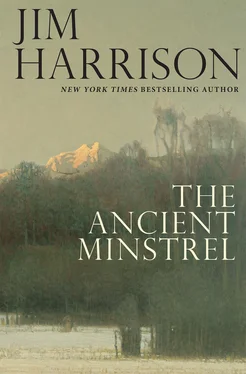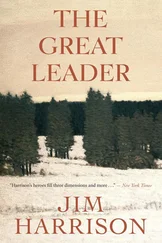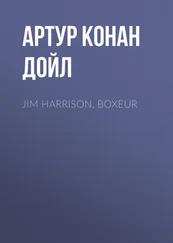He had always been irritated by Wordsworth’s line about the child being father of the man. He didn’t doubt its basic truth but it was the deterministic aspect that bothered him. Of late he had been perplexed by religious threads that entered his thinking, originating as they did from a devout period he went through between the ages of eleven and fifteen. Jesus had been his boyhood hero rather than Superman or any of the other comic book heroes his friends favored. A neighbor friend was obsessed with growing up to be Dick Tracy and having a wrist radio to communicate. This friend died in Vietnam and so far as he knew had never owned a cell phone. This all had come to a head when he was a senior in college in a philosophy seminar. He had brought up the idea that in youth it was easy to acquire beliefs that were difficult later to disbelieve. For instance he still believed in the Resurrection and felt eerie about it at Easter time. He was roundly derided except by the professor who thought it was an interesting question. There was a lot of condescension and ridicule and general raw spirits. A lit student pointed out that the French poet Guillaume Apollinaire had written that Jesus held the world’s high altitude record. There was laughter and he recalled that at the minstrel show he had been enraged when those onstage sang what was then called a Negro spiritual in their mock black voices. This was clearly sacrilege as his minister would certainly have said. The professor interrupted to point out that what he had brought up was particularly true of young people with hateful beliefs such as antiblack racism or anti-Semitism that seemed to continue to follow them throughout their lives. He jumped in and agreed, then added in his own level of derision that those in the class only believed in beer, golf, and pussy. The professor chided him for vulgarity but with a slight smile of agreement.
Now all of these years later he was again burdened by those hidden beliefs. He could not tell you why he believed in the Resurrection but it had never occurred to him to disbelieve it. He took to saying little prayers well under his breath. His main problem was alcohol which was easy to acknowledge. He prayed and then didn’t go to the bar for a whole week. He had his shooters at home but no full bottle. One evening he drank seven shooters but didn’t get all that far. He felt he should have been drunker. Now his friends called, really just tavern friends, and asked if he was sick. “Yes, we all are,” he said cryptically. He didn’t necessarily mean alcoholism. He rarely exceeded two drinks a day, he told himself. It was the regularity of the tavern habit that had begun to drive him crazy.
And then there were his fears that something might happen to his piglets in his absence. The sow was safe from stray dogs — her enormous jaws would make mincemeat out of any hapless mutt. But the piglets were vulnerable. Now he could tend them after a long day’s writing. To be frank the pigs were now far more interesting to him than his tavern friends.
As a child he had read a great deal including the forbidden so-called adult books. His father had saved his own youthful library that included travel adventure books by Richard Halliburton, all of Zane Grey, and a peculiar series about a young man named Tom Swift. His reading was aided by childhood illnesses like a severe case of pneumonia that kept him in bed for a month of reading as did his severe eye injury. He began to think of school as being quite boring compared with the pleasures of reading. Tom Swift and His Electric Rifle had been far ahead of its time back in the teens and twenties, and those books encouraged him to think about the world in a more organized way and develop his own theories. For instance, because he first got religion in the summer, it occurred to him that God must have come up from the ground and entered him through his bare feet. Why not? His feet were bare all summer long and he thought at times that he felt messages in his feet, his telephone to the spirit world. At age nine he dropped this theory on his Sunday school class and it was unpopular. Everyone else insisted that God was in the sky. The teacher was sympathetic remembering the goofiness of her own conversion which was when she was out in nature and the trees were speaking to her. He persisted in trying to figure out life, keeping track in a diary, so it was not surprising when he became a writer. Once when they were trout fishing he mentioned his God in the ground theory to his father who responded that he always thought God was a trout stream. Hearing this he began to worry about Godless deserts with no rivers and said so. His father replied that deserts were full of arroyos and dry riverbeds, the rivers of the past, and God didn’t need active water present because he didn’t drink water. He brooded about his father’s words for months and became excited about the future and going west to sense God in dry riverbeds. His father also advised that there was no money in theology. This fell upon deaf ears as he never thought much about money.
He got two dollars a week as an allowance, plus what he could earn mowing lawns, washing cars, weeding gardens. He saved as much as he could to follow the path of the great Halliburton when he got old enough. He wanted to crisscross the world and have many perilous, but not too perilous, adventures. He would doubtless save a beautiful native girl from a giant anaconda, whacking off its head with his trusty machete. Just recently an awareness of women had entered his life strongly. The culture was looking for an extra four years for college which would needlessly delay adventure. The world gave one so many reasons to be pissed off at it. The age factor was a matter of great impatience. The young want time to hurry, the old usually want it to slow down.
He had found out he was bright completely by accident. A man from the university in a nearby city needed a guinea pig to take tests as part of a course. He got two bucks an hour, a real windfall, to take five different IQ tests and late in the process he had snooped through the man’s papers when he went out to pee and noted his scores for the first four tests ranged from 163 to 171. He didn’t know what this meant, if anything of consequence. Religion had loosened some screws in his head and at this point in life he didn’t want to be brilliant, he just wanted to be ordinary.
At fourteen he didn’t want to fear for his sanity. One of his few literate friends, albeit goofy, had lent him a volume of Gurdjieff and Ouspensky and he had carelessly experimented with “out of body” trances wherein he could do such things as visit other planets and walk on the ocean floor. He had chosen the Mindanao bays, the deepest part of the ocean, but hadn’t imagined the bottom would be pitch black other than for a few phosphorescent creatures. The problem was that once he got there he couldn’t get back in his body back home. He had started in the evening and struggled to return to normality most of the night. This frightened him terribly and in the light of a summer dawn he was very happy to recognize objects in his room, especially a print of a Modigliani portrait and another of The Birth of Venus by Sandro Botticelli. Evidently Venus was born full grown and certainly the sexiest person in humankind. At his age she gave him a frequent hard-on. Once liberated back to the ordinary he vowed never again to errantly play with his mind. The imagination was too large to play with.
He spent a few weeks of forlorn boredom in the very early spring and then began running every day after school at the suggestion of the coach who one day timed him while his large boys’ phys ed class ran the half mile. The coach was cagey noting that he had won by a couple hundred yards and his time was certainly good enough for the school track team. By working out relentlessly he was able by May to take second place by only a few seconds in the county championship meet. For a few years it was wonderful. However, he stupidly ruined it all the following summer when he gained thirty pounds of muscle on the advice of another coach. He gained the weight to play football. At present he viewed this as a lifelong mistake thinking that though the muscle was pleasant it did him no good, and he could pointillistically trace all of his various aches and pains in middle age back to the injuries he had sustained in high school football. He was a running guard on offense and a middle linebacker on defense. In one game he was called and the team penalized for unnecessary roughness. He was ashamed when later he learned he had needlessly injured a boy on a team from a neighboring town. At heart he was a secret Quaker and football was pure violence. The coach was always telling him to “hit them harder.” The coach wanted him to put opposing players “out of commission.” He kept it to himself but wondered what the point of the “game” was if your intention was to hurt people badly. His girlfriend was one of the cheerleaders and a bit dim-witted though lovely.
Читать дальше












